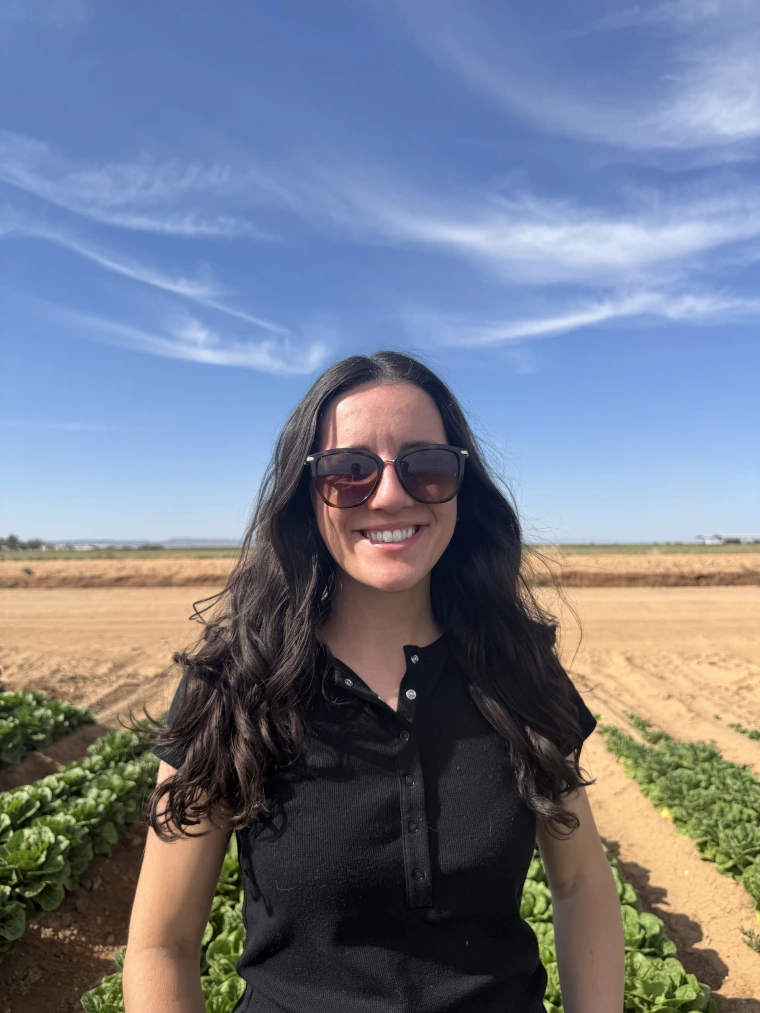Alyssa Rosenbaum

Alyssa is a PhD student in the Department of Environmental Science, conducting her research under the mentorship of Dr. Channah Rock at the Maricopa Agricultural Center. Her work focuses on fresh produce food safety, specifically supporting the industry with best practices in the pre-harvest environment. Alyssa’s research aims to develop practical, science-based solutions to improve on-farm food safety, with a particular emphasize on pre-harvest agricultural water. Before attending the University of Arizona, she earned her master’s degree in Food Science and Technology from Virgina Tech and a dual bachelor’s degree in Horticulture and Culinary Food Science from Iowa State University.
Enhancing Industry Resources for Pre-Harvest Agricultural Water Assessments under the FSMA Produce Safety Rule
In May 2024, the US Food and Drug Administration published revisions to Subpart E of the Food Safety Modernization Act (FSMA) Produce Safety Rule (PSR). The PSR establishes mandatory standards for the safe production and harvest of fresh fruits and vegetables, with Subpart E specifically addressing agricultural water requirements. The rule updates pertain to pre-harvest agricultural water— water used for growing activities that is intended or likely to contact produce, such as water used for irrigation or crop protection sprays. Under the revised rule, growers are now required to conduct a pre-harvest agricultural water assessment to evaluate certain factors for potential food safety hazards within their operations. Based on assessment findings, growers must determine the associated food safety risk and, if necessary, implement science-based mitigation measures, such as treating water, repairing systems, or modifying irrigation practices. While the revised rule offers flexibility to accommodate diverse operations, concerns have been raised about the subjective nature of the assessments, challenges in adequately evaluating food safety risks, and uncertainty surrounding compliance with the new requirements. This project aims to address these concerns by providing the fresh produce industry with field-based data and educational resources to support risk-based decisions regarding pre-harvest agricultural water. Ultimately, the goal is to enhance industry and regulatory confidence while protecting public health.

